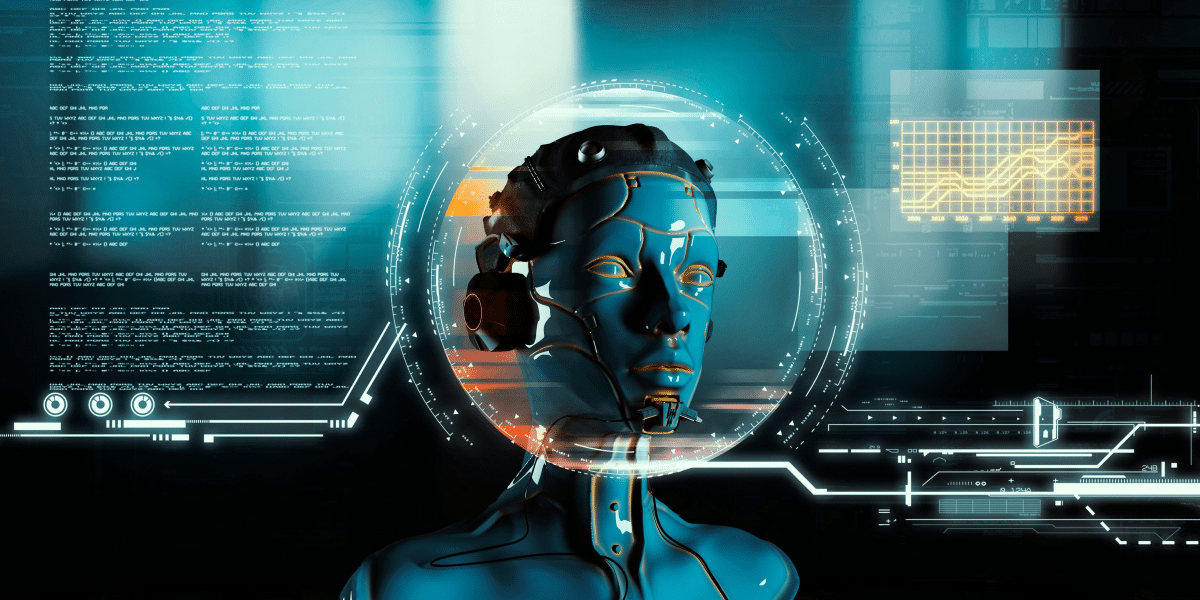Artificial intelligence (AI) is rapidly becoming an essential part of modern life, reshaping industries, economies, and the global workforce. In the coming years, AI’s influence is expected to expand even further, driving innovation and improving how we live, work, and interact with technology. This article explores the future of artificial intelligence and its potential to transform key sectors like healthcare, transportation, and the workplace.
The Rise of Artificial Intelligence
AI refers to the capability of machines to perform tasks that would typically require human intelligence, such as speech recognition, decision-making, and problem-solving. As machine learning (ML) and deep learning have advanced, AI systems have grown smarter and more capable, already becoming integral to many everyday applications, from virtual assistants to recommendation algorithms. Looking ahead, the future of AI holds the potential for even more sophisticated systems that will further redefine our daily lives and the economy.
AI in Healthcare: Modernising Diagnostics and Treatment
One of AI’s most promising areas is healthcare, where it is already enhancing diagnostics and treatment. AI tools are improving the accuracy of detecting diseases like cancer and heart conditions, enabling earlier interventions and reducing the risk of human error. AI systems can analyze medical images, such as X-rays and MRIs, faster and more accurately than human professionals, leading to quicker diagnoses.
Additionally, AI can process vast amounts of patient data to personalize treatment plans, ensuring that treatments are tailored to individual patients based on their genetic profiles and medical histories. This approach has the potential to make healthcare more efficient and effective.
Drug discovery is another area where AI is making significant strides. Traditionally a lengthy and expensive process, AI can analyze millions of chemical compounds and predict their effects, accelerating the development of new drugs and treatments, which will be crucial in addressing future health crises.
AI in Transportation: Driving the Future of Autonomous Vehicles
AI is set to transforming transportation, especially with the development of autonomous vehicles. Self-driving cars are already being tested, and in the future, they will become more common on the roads. Autonomous vehicles powered by AI will reduce traffic accidents—most of which are caused by human error—and improve traffic flow, fuel efficiency, and overall safety.
Beyond personal vehicles, AI will also transform public transportation and logistics. Self-driving buses, trucks, and drones will make supply chains more efficient, reducing costs and speeding up deliveries. In urban settings, AI can help optimize public transportation routes and reduce congestion, contributing to more sustainable cities.
AI in the Workplace: Redefining Jobs and the Workforce
The rise of AI will inevitably change the nature of work. AI systems are already automating tasks traditionally performed by humans, particularly in manufacturing, finance, and customer service. However, this does not mean the end of human jobs. Instead, AI will free up workers from repetitive tasks, allowing them to focus on more creative and strategic activities.
In manufacturing, AI-powered robots can take over routine tasks on assembly lines, improving efficiency and precision. In customer service, AI chatbots can handle basic inquiries, providing faster and more accurate responses than humans. However, as AI continues to evolve, new jobs will emerge, particularly in areas like AI maintenance, data analysis, and AI ethics.
Upskilling and reskilling will be essential for workers to adapt to the AI-driven economy. Jobs requiring technical skills, such as machine learning, cybersecurity, and software development, will be in high demand, as will roles that emphasize human creativity, empathy, and critical thinking.
Ethical Considerations and Challenges
As AI becomes more pervasive, it raises several ethical concerns, including data privacy, bias, and accountability. One of the biggest challenges is ensuring that AI systems do not perpetuate existing biases. For example, AI algorithms trained on biased data sets may produce discriminatory outcomes in areas like hiring or lending. Ensuring fairness in AI development will require diverse data, transparent algorithms, and continuous monitoring.
Data privacy is another critical issue. AI systems rely on vast amounts of data to function, but this increases the risk of data breaches and misuse. Policymakers and industry leaders must create robust frameworks to protect individuals’ privacy while allowing AI to continue advancing.
There is also ongoing debate about the development of artificial general intelligence (AGI)—AI systems that could perform any intellectual task that a human can. While AGI is still theoretical, the possibility of machines surpassing human intelligence in the future raises concerns about safety and control. Researchers are working to ensure that AI development aligns with human values and benefits society as a whole.
The Future of Artificial Intelligence: A Collaborative Partnership
Looking forward, the future of artificial intelligence will likely involve a closer partnership between humans and machines. Rather than replacing human workers, AI will augment human abilities, helping people make better decisions, solve complex problems, and enhance creativity. In fields like healthcare, education, and business, this collaboration will lead to better outcomes for society.
Conclusion
Artificial intelligence is already transforming industries and reshaping our daily lives. From reorganising healthcare diagnostics to driving the development of autonomous vehicles, AI’s potential is vast. However, as AI continues to evolve, it is crucial to address ethical concerns around bias, privacy, and accountability. By fostering a collaborative relationship between humans and AI, the world can harness the full potential of artificial intelligence to create a more innovative and equitable future.
The future of artificial intelligence is bright, and as AI systems continue to develop, they will drive unprecedented progress across all aspects of society.
Published by: Annie P.


















